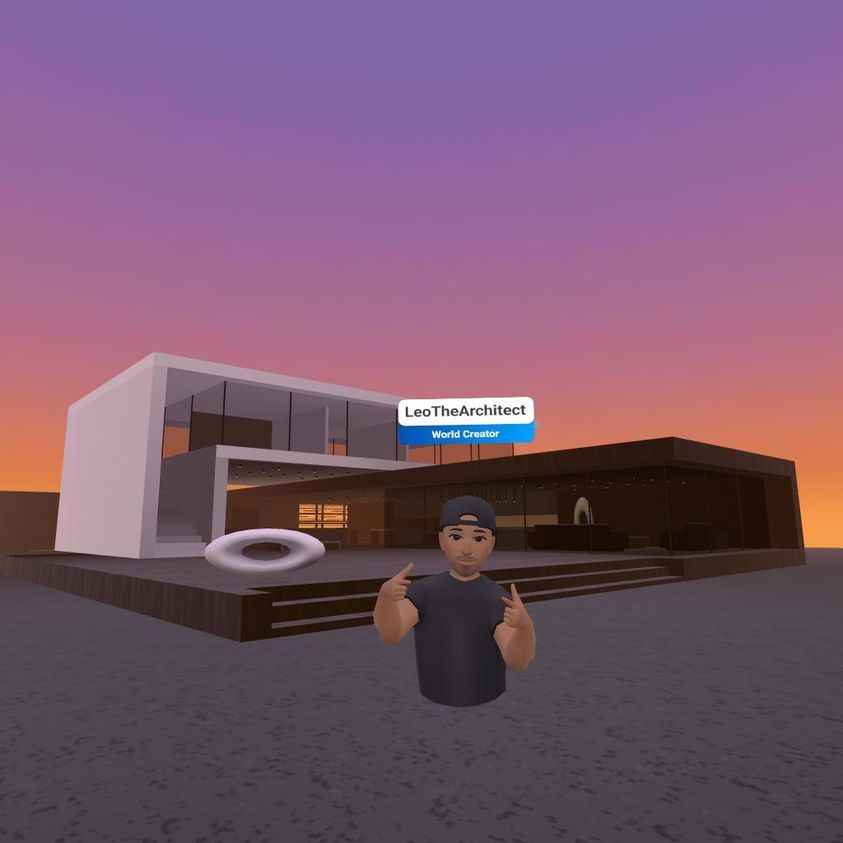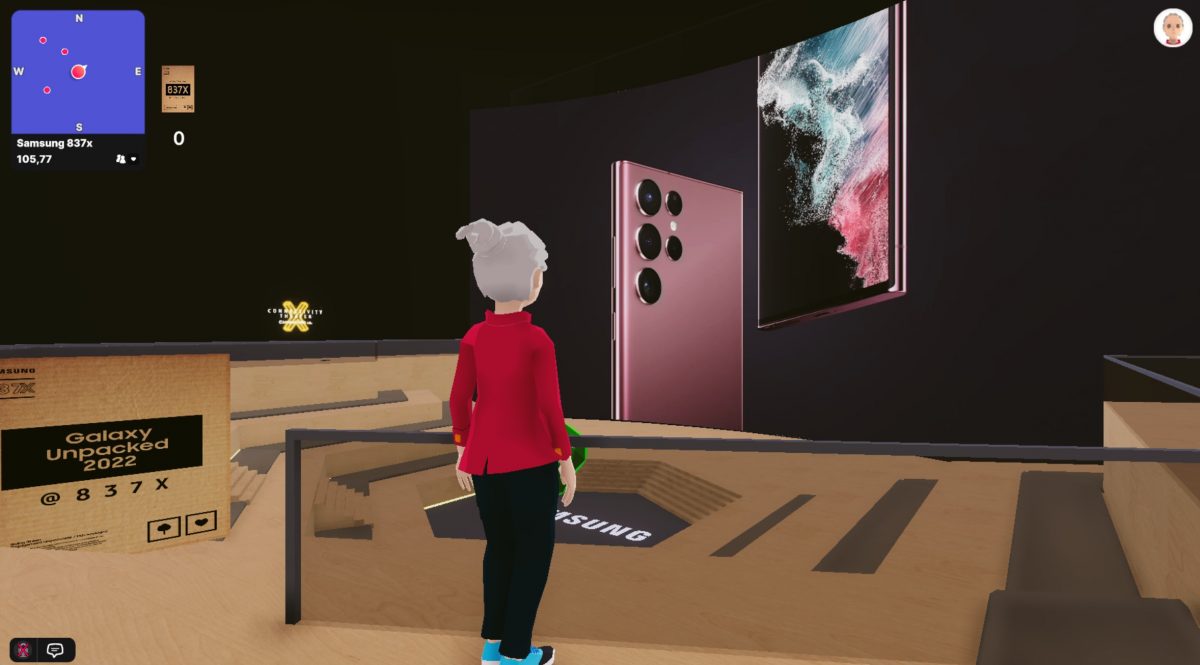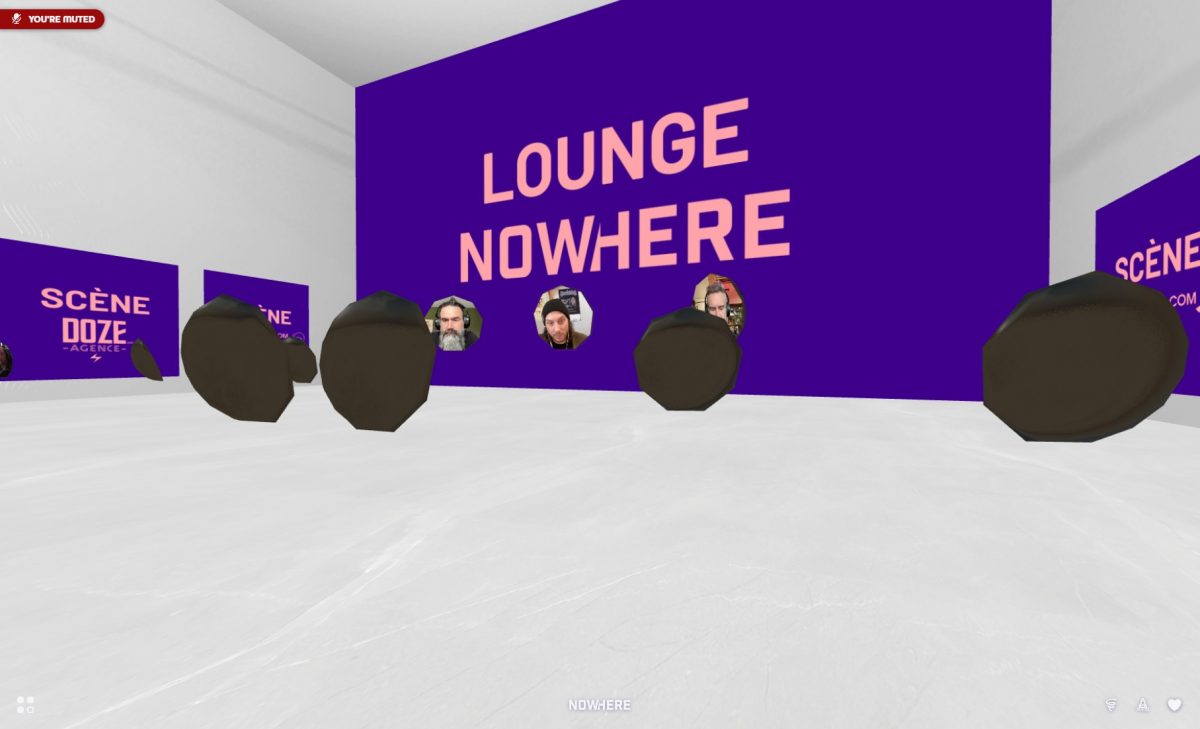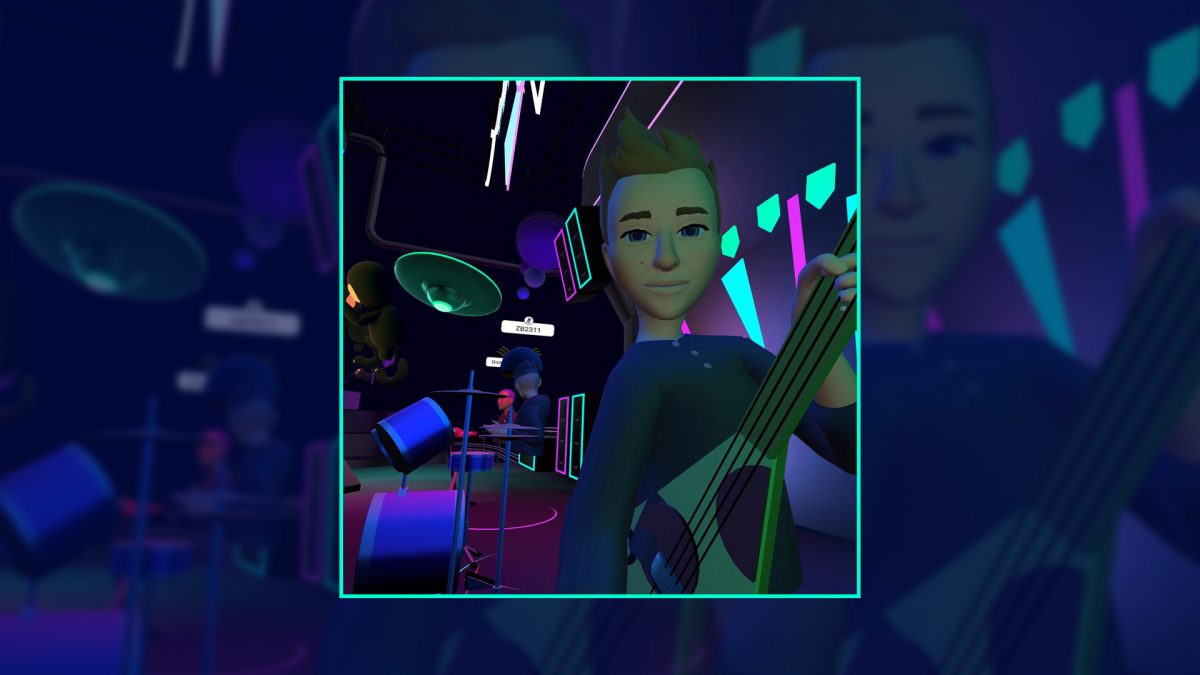Leandro Rollon is an architect and businessman. Over the years, he designed many residential and commercial buildings, especially in Asia. His latest creation, which I visited with him, is one of his most impressive. This modern luxury residence consists of a public area on the ground floor and a private section on the upper floor. Here he intends to have his family and friends for intimate discussions, but also for the clients to show them the models of other houses he plans to design – at least that is his desire – to sell.
“I chose a realistic style. Here, I don’t have to worry about the laws of physics, but I wanted the visitors to feel like they were in the real world,” the Miami architect explains to me.
As you’ll understand, home is digital, and Leandro Rolon hopes to live nearly there in the metaverse, this chain of virtual universes where major tech companies predict that we’ll someday spend a part of our lives, whether for work, pleasure or, of course, consuming.

I could have interviewed Leandro Rollon by video, but as long as I meet the Metaverse Engineer, I might as well in his creation. This has a storefront in Horizon Worlds, software from Meta (Facebook’s new name) for the Oculus Quest 2 virtual reality headset. The app provides access to thousands of different worlds, such as games or chat rooms. Some are created by Meta, and some are by users like me. This concept is somewhat reminiscent of Roblox, which also allows you to design games and online worlds.
Virtual reality is not ideal for an interview. I can’t take notes with a headset on my head, and the simplified 3D avatar of my interlocutor doesn’t allow me to decode his intentions or emotions. But such a meeting is still much warmer than a telephone conversation, for example, perhaps because of the sound that comes from the direction of our interlocutor, as in real life, because we can express certain feelings by moving our hands, so that we can “walk” during Speaking or we can feel the other’s gaze when their virtual eyes look at us.
Not (yet) real metaverses

Meta Horizon Worlds is not presented as a metaverse, but rather an introduction. According to Mark Zuckerberg, the metaverse will benefit significantly from more advanced technology, with more photo-realistic avatars, and will include a real economy, which will one day allow Leandro Rollon to sell his virtual home, which he cannot do at the moment.
Some also hope that the future of the future will be more open and interconnected.. This way, the avatar I created to represent me in Horizon Worlds will be able to follow me on Roblox or Fortnite, for example.
Many companies feel free to use the term “metaverse” to define their current virtual universes. At the beginning of February, Le Phoque OFF Alternative Broadcasting Festival Organized a press conference [son] metaverse” to present the program for its 2022 release. On the Nowhere platform (accessed using a browser instead of a virtual reality headset), the Quebec Festival will offer networking activities, training, conferences, workshops, and of course performances, all in 3D.

We were about ten reporters at the press conference. The meeting could have been more effective via videoconferencing (another journalist’s avatar slightly obscured my view, which didn’t happen on Zoom), but nonetheless it made sense to have it in the same venue as the festival. Maybe it was the simplicity of the room we were in, but in all honesty I felt like the modern version From a chat program from the late ’90s Only in the future. However, holding such a meeting shows how quickly it is gaining credibility that was unknown to most people only a few months ago.
I didn’t get a chance to attend the Seal OFF show, which takes place February 21-25, but I watched another show recently, where American group Foo Fighters gave a concert at the Horizon of Meta after the Super Bowl.
Above all, this show demonstrated the limits of current technology. Only 13,000 participants were able to attend live, while many of them may not have been able to do so due to technical glitches. For a concert announced as part of the biggest sporting event of the year in the US, it’s not so much. But for those who were there, it was very successful. We walked around with our avatar in the equivalent of a VIP chest, with about fifteen other spectators at a time. Singer Dave Grohl, captured in a 180-degree video, looked larger than life on stage right in front of us.

Was the 45-minute concert better for people surrounded by other VR avatars than people who just saw it in 2D on Facebook Live? I think so. I had the impression that I attended a real concert more than if I had watched it on my computer.
Moreover, even before the show, the simple fact of waiting in a virtual hall in front of the dressing room door and chatting with other people around me helped give a certain impression of realism to the event. From there to say it could one day replace a walk in the flesh, but there is a step I would not dare to cross.
What will replace the metaverse (or not)
The observation is the same for all the other activities you have been involved in in these virtual worlds over the past few days. Each time, it was better to use the same activity in real life.
Someone created a virtual house in Horizon Worlds to celebrate the clock, for example, with loud enough music and even a table beer pong. I wouldn’t trade a night out with friends for that, but those who were there and got along with the group still enjoyed it. Maybe more than if they stayed glued to Instagram or Twitter. It should be noted that during my visit, the other participants showed the door to the visitor after the vote. I did not witness the interaction that caused the quarrel, I was elsewhere in the house, but the incident was a good reminder that Moderation in the metaverse won’t be easy.
Critics of the metaverse believe that it will not replace the real world. After a week of exploring different virtual worlds, I tend to agree with them. The technology is still in its infancy, but no realistic avatar, no server capable of hosting 10,000 people instead of 12, no effective oversight, and no perfect 3D home that will beat the human touch.
However, the metaverse does not need a real-life replacement to be successful. According to polls, Canadians have been spending Up to 11 hours a day in front of a screenWhether it’s their phone, computer, or television. Our daily lives have already been turned upside down by technology. The metaverse will be one more screen, with select uses, that will replace a portion of the time we spend in front of our other electronic devices. For many of the people I’ve met almost this week, that shift has already begun.

“Certified gamer. Problem solver. Internet enthusiast. Twitter scholar. Infuriatingly humble alcohol geek. Tv guru.”





